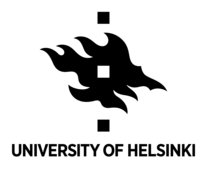University of Helsinki
 This is a list of all the materials published by academics at University of Helsinki in the order they were published with the most recent first.
This is a list of all the materials published by academics at University of Helsinki in the order they were published with the most recent first.
 This is a list of all the materials published by academics at University of Helsinki in the order they were published with the most recent first.
This is a list of all the materials published by academics at University of Helsinki in the order they were published with the most recent first.